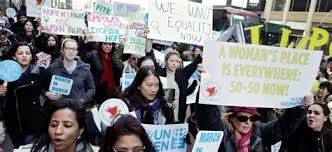The Generation Equality forum has reached a record $50.3 billion in financial commitments, according to a new report by UN Women.
By Abdourahmane Diallo
A new UN Women report reveals significant progress in the fight for gender equality around the world. According to the document, “Report on the Accountability of Generation Equality 2024,” released on September 19 in New York, financial commitments to gender equality have reached a record $50.3 billion, exceeding initial projections for 2021 by 25 percent.
Launched three years ago, this multi-stakeholder initiative has made significant progress in a number of key areas. In the words of Sima Bahous, Executive Director of UN Women, “The results reported and the level of commitment to Generation Equality will be a key driver for UN Women as we celebrate the thirtieth anniversary of the Beijing Declaration and Platform for Action in 2025.”
The report highlights not only the increase in financial commitments, but also their concretization. More than $21 billion has already been spent to implement initiatives that directly benefit women and girls. For example, the Amartha organization has supported 2.3 million women-owned businesses in more than 54,000 rural villages in Indonesia, according to the report.
Generation Equality’s impact goes beyond funding. Nearly 2,000 new or strengthened policies have been put in place to address systemic barriers to gender equality. In the area of peace and security, signatories to the Pact for Women, Peace, Security and Humanitarian Action have reached 24.8 million women and girls by 2023 with an investment of $1.5 billion, according to the document.
The initiative has also fostered strong partnerships. “Generation Equality’s support and partnership with the frontline team in The Gambia had a pronounced impact on the positive outcome of the fight against the repeal of the 2015 Women’s (Anti-FGM-Female Genital Mutilation) Amendment Act in The Gambia,” argued Ndey Sireng J. Bakurin, president of The Association of Non-Governmental Organisations of The Gambia (TANGO).
Despite these encouraging advances, the report highlights the need to intensify efforts, including optimising funding for youth-led organisations and accelerating the engagement of men and boys in gender equality initiatives.
ARD/te/sf/lb/as/APA


